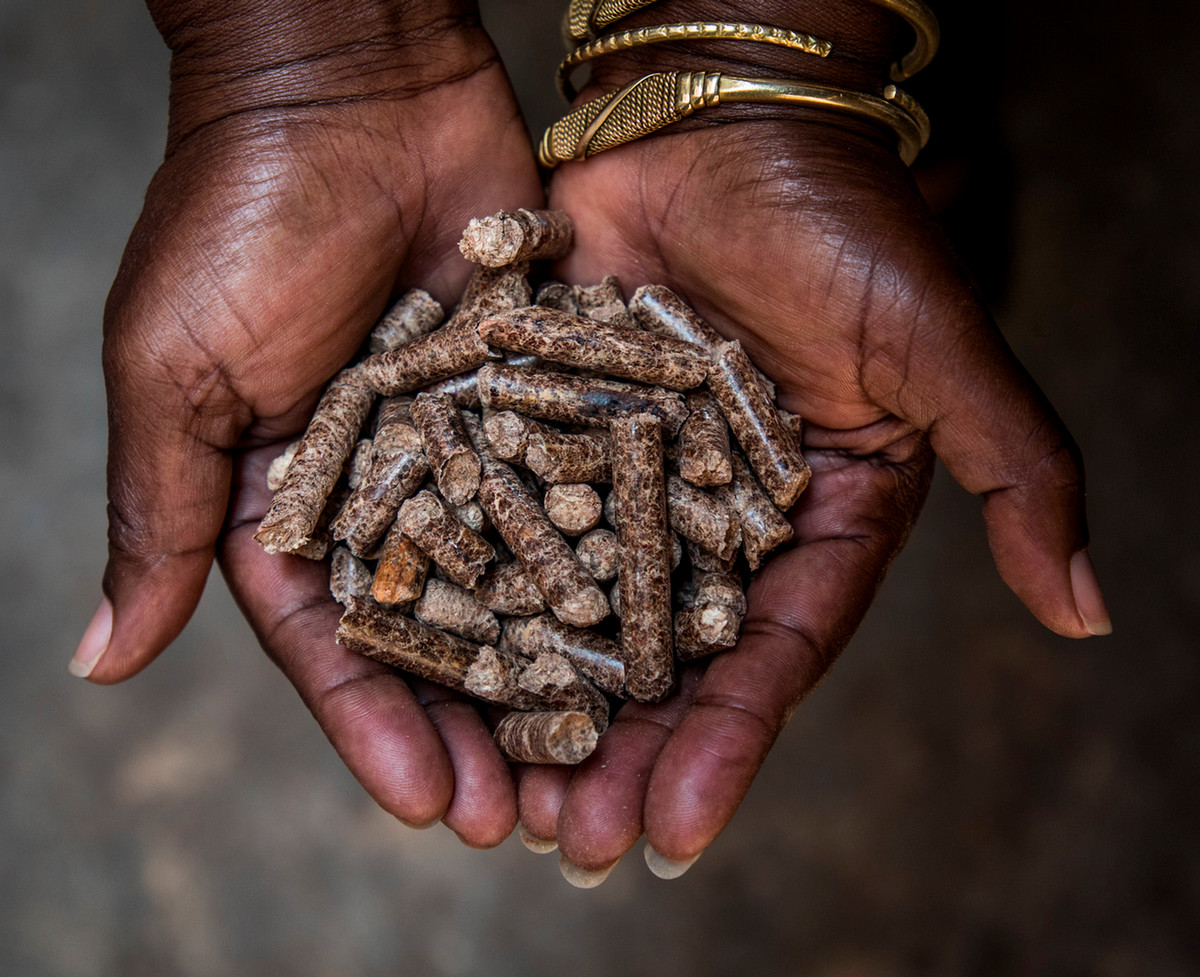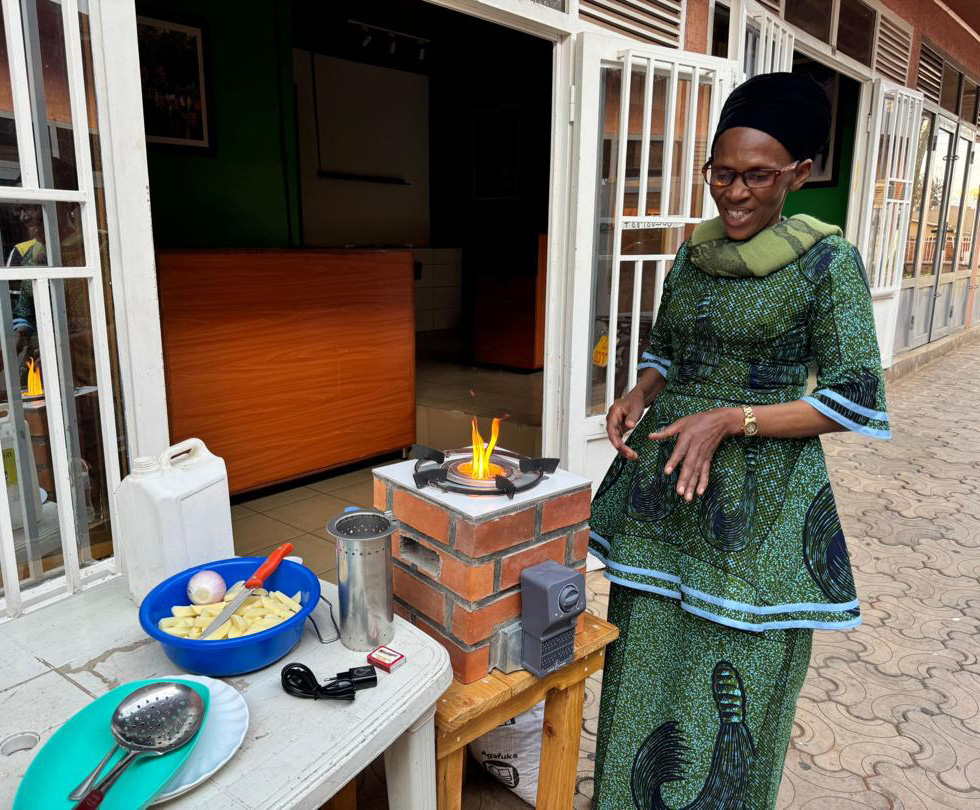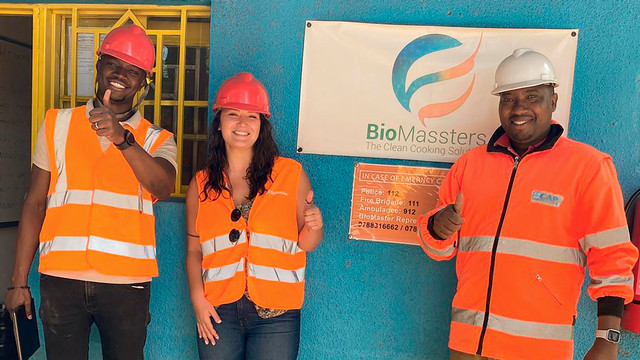Cooking up sustainable solutions in Rwanda
BioMassters, a company founded in 2020 in Rwanda to provide clean, affordable, and sustainable energy cooking solutions, is a game changer, says its 30-year-old chief operating officer, Yasmine Karam. Just ask the company’s customers.
And that is what Karam does when she takes current and prospective investors and government officials to visit customers.
“The women tell us how they can now save money to pay for their kids’ school fees and other essentials,” she said. “They report better health because they’re not inhaling charcoal smoke. It’s really rewarding to hear the impact we’re having.”
By producing pellets made from sawdust and agricultural waste for use in cookstoves, the company offers a low-carbon, affordable, and healthier alternative to the charcoal and firewood traditionally used by Rwandans for cooking. Cooking with these renewable energy pellets also helps mitigate deforestation. Recently, BioMassters expanded its product line by training female Rwandan masons to build modern-energy-solution cookstoves using core parts imported from China.

BioMassters cooking pellets
A 2017 University of Richmond leadership studies and psychology graduate, Karam joined BioMassters in January 2023. Before that, she worked for over five years in the international development sector in Rwanda, including two years in the Peace Corps.
Initially, she served as BioMassters’ monitoring and evaluation director, responsible for conducting quantitative analyses of the company’s impact. After only seven months, she was promoted to director of commercial operations, an outward-facing role focused on strategy. She became chief operating officer in March 2025.
“As COO, I am responsible for our pellet and stove sales, the production of our made-in-Rwanda cookstoves, and the oversight of our carbon finance data,” Karam said. “When our customers switch from dirty fuels like coal and wood to clean pellet fuel, they generate carbon credits that we sell mostly to European buyers through our carbon partner, FairClimateFund.
“We then have a revenue-sharing model whereby we send cash back to our customers as they consume pellets. We document every pellet purchase and link it to every customer, noting the size of the purchase, the size of the customer’s household, and where the customer lives.”
She stressed, however, that unlike many similar companies, BioMassters does not rely on the volatile carbon-financing market to function. The company focuses on intentional, sustainable growth that is locally driven, she said. That approach has paid off.

Rwandan woman using a BioMassters cookstove
“When I joined BioMassters in 2023, we had 1,000 customers,” the alum said. “Today we have 7,000, which means we’re impacting 25,000 people, including 16,000 children. We’ve grown by asking people to make a behavior change, to buy a product they didn’t know they needed, that will improve their health and finances.”
Her interest in global development was nurtured from a young age. Born in Palestine to American international development professionals of Palestinian, English, Lebanese, Italian, and French heritage, her first language was Arabic. When she was four, the family moved to Fairfax after her father accepted a job with the World Bank.
Karam explored international development at Richmond through classes such as Dr. Javier Hidalgo’s Leadership in International Contexts, where students discussed ethical cross-cultural relationships and effective altruism. Her Jepson School of Leadership Studies internship with a nonprofit in Haiti taught her the value of grassroots development, she said.
During their senior year, she and fellow Spider Fabiana Ayala received a $10,000 Davis Project for Peace grant to implement their proposal to support the economic empowerment of women in Bolivia following their graduation in 2017.
Today Karam is on the frontlines of international development, living in a country she loves and working for a company she loves.
“It is not easy to find a company that hits so many sustainable development goals at once, including affordable and clean energy, health and well-being, gender equality, and climate action,” she said. “We have holistic, multi-sector impact. It’s easy to brag about our work.”
